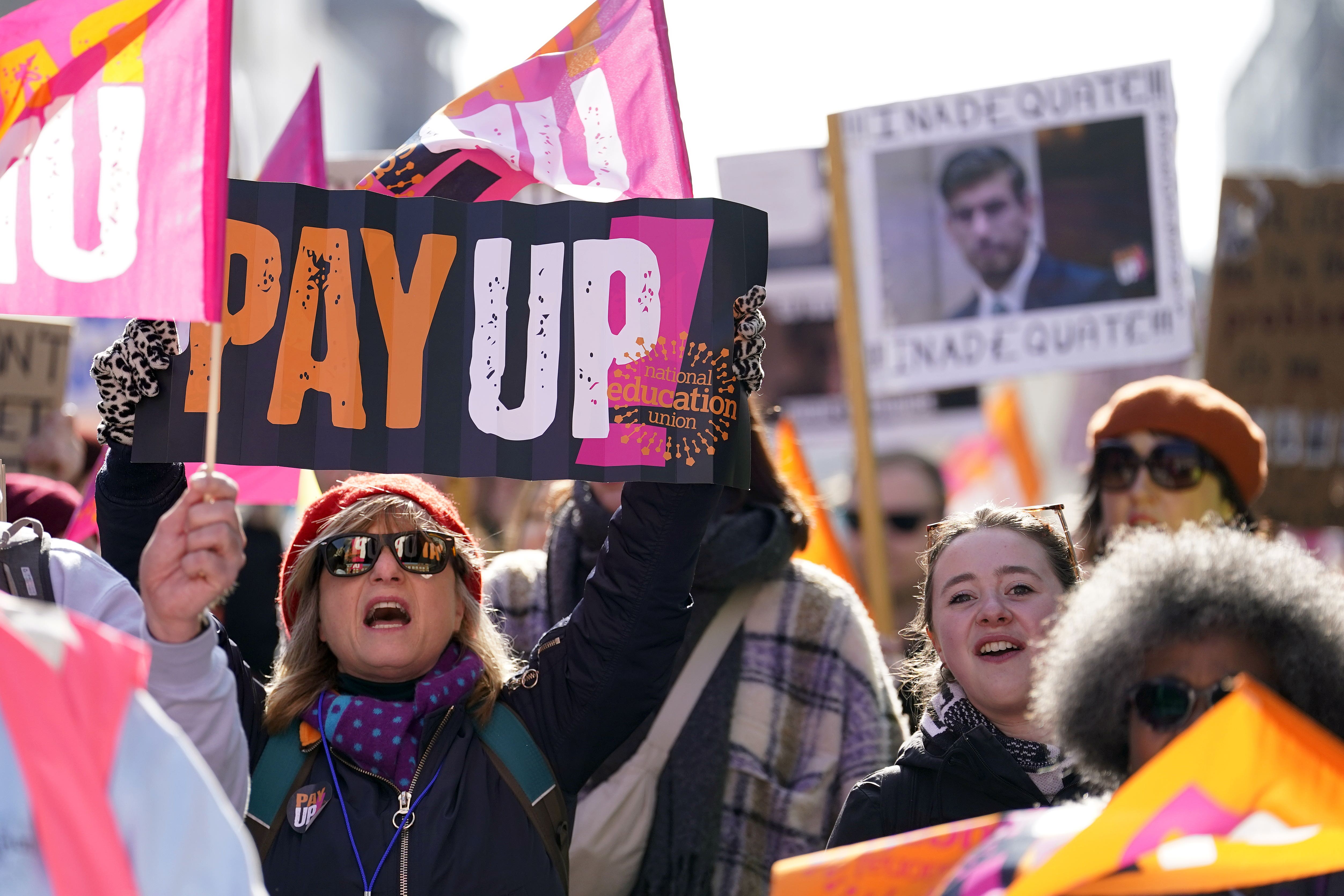Why the teachers’ strike could be a long fight
Staff room solidarity suggests Gillian Keegan will need to find a better offer to end the dispute, writes Sean O’Grady


Members of England’s biggest teaching union, the National Education Union (NEU), will strike on Thursday 27 April and Tuesday 2 May, after rejecting the latest pay offer. Teachers were offered a £1,000 payment for the current school year, on top of an average 5.4 per cent rise last September, plus an average 4.5 per cent rise next year; starting salaries would also rise to £30,000 from September. The NEU said the offer was “insulting” and had “united the profession in outrage”.
Why are teachers back on strike?
Because the government’s offer isn’t good enough; because they fear for the future of the profession as shortages add to oppressive workloads; and because they sense, after the nurses and railway workers settled, that the government might improve the offer if they keep the pressure up. Given the state of recruitment and retention, especially of shortage subjects, the situation in some schools may become unviable in the medium term, at least according to the unions. Settlements in Scotland and Wales are worth nearer to 8 per cent, and this may have emboldened their colleagues in England to step up pressure.
Are all teachers on strike?
No. Nine out of 10 members of the NASUWT voted for strike action in January but the turnout was 42 per cent, below the legal threshold for lawful action. They have put the government pay offer to their members, and the result of the ballot is due shortly. The Association of School and College Leaders and school leaders’ union NAHT are also balloting members on the current offer; the latter is asking if members would take industrial action if the pay offer is rejected. So the strikes could spread further.
Already, about 50 per cent of schools have been affected by industrial action. The pay dispute has been settled in Scotland, mostly settled in Wales and in Northern Ireland there is industrial action short of a strike.
Is this just a militant minority?
They might be “militant”, possibly with sound reason, but this is certainly not a tiny sect of Marxists bossing around a wider moderate membership. The vote to reject the pay offer had a 66 per cent turnout, with a remarkable 98 per cent of those voting rejecting the offer. That’s a better mandate than most MPs enjoy.
That degree of unanimity suggests solidarity, and that the education secretary, Gillian Keegan will need to find a more tempting way to entice the schoolteachers back into the classrooms.
Does Labour back the strike?
All Sir Keir Starmer will say is that it’s disappointing and that both sides need to get around the table and make a deal; this familiar refrain is now the standard Labour line. Starmer is also inclined to impose disciplinary action on colleagues who defy him by turning up on picket lines or by offering public support.
Are the Conservatives on the side of hard-working families?
They like to say so, and that will be the rhetoric over the coming months as strikes by civil servants such as those in the Passport Office drag on. Tory ministers and MPs will be very keen to associate Labour and their “union paymasters” with the disruption caused to families. As the 4 May local elections approach, such arguments will be heard more and more. On the other hand, some parents at least will have some sympathy with the teachers, and agree that improved pay and conditions are needed simply to provide children with an adequate education and the best start in life.
Where will it end?
Keegan seems to be indicating that the £1,000 one-off payment is off the table now that the new pay year has started. The teachers’ independent pay review body is starting work on this year’s offer. Keegan wrote to the pay review body last year and seemed to be suggesting a fairly modest rise for 2023-24: “Pay awards must strike a careful balance, recognising the vital importance of teachers and other public sector workers, whilst delivering value for the taxpayer, considering private sector pay levels, not increasing the country’s debt further, and being careful not to drive prices even higher in the future. In the current economic context, it is particularly important that you have regard to the government’s inflation target when forming recommendations.” Keegan’s only real concession to classroom shortages was to point the review body to the “government’s commitment to uplift starting salaries to £30,000”.
The pay body will publish its recommendations in May. Teachers appear determined to put an end to the constant erosion in the real value of their pay, and Keegan doesn’t seem inclined to any particularly imaginative answers: could be a long one.






Join our commenting forum
Join thought-provoking conversations, follow other Independent readers and see their replies
Comments